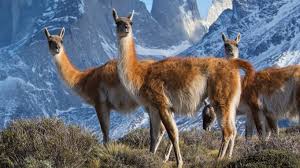PASADENA, Cal. – You can say what you want about the British.
You can mock their food, their politics, their odd insistence that “football” is a game in which no one catches, tackles or scores.
But let’s agree on this: These people make good dramas, smart mysteries and (shown here) superb nature films.
At the current Television Critics Association sessions, we’ve seen proof of that. One streaming service (Acorn) ranges from the steely drama of “Blood” to the giddy mysteries of “Agatha Raisin.” Another (Britbox) ranges from the sharp “Vera” mysteries to Martin Freeman’s complex “Confession.”
But we’ve also seen more proof of just how good the BBC Natural History Unit is.
This is the department that started in 1959, with David Attenborough as an outside producer and presenter. Sixty years later, he won an Emmy for narrating “Our Planet.”
Now Attenborough, 93, is at it again. His narration supplements the brilliant camerawork and editing of “Seven Worlds, One Planet,” a terrific show … even when it switches episodes.
The opener runs from 9-10:30 p.m. Saturday (Jan. 18) on BBC America and three sister channels (IFC, AMC and Sundance), then reruns at 12:30 a.m. on BBC America. Since two of the channels don’t adjust to time zones, that means West Coasters can catch it at 6 p.m. PT on BBCAtt America and IFC, 9 p.m. on AMC and Sundance and 9:30 on BBC America.
Its opening episode has been switched, but the quality persists.
Originally, this was going to start with North America, which was logical. It is, Attenborough points out in the film, the most varied planet, ranging from the 40-below Arctic to 100-plus-degree desert.
That episode is wondrous. In the sea, a fish builds a 3,000-stone nest; in the desert, a road runner hunts. One segment captures a rarity – a polar bear successfully hunting a beluga whale. Another, using fast-forward, captures the fairy-like beauty of a firefly forest.
It would have been a great start – but then BBC America switched. With wildfire devastating Australia, that continent (shown here) has been moved to opening week.
One segment Saturday – a dingo on the hunt – has rarely been filmed; it took weeks and two crews to capture. Another spectacular scene has great swarms of bats zooming down on a river for a drink … with crocodiles waiting to leap and snap.
Most impressive is the moment that has sharks do team fishing. They diligently herd fish – zillions of them – toward the shore, then have a shallow-water feast.
These are great scenes. They have nothing to do with the current crisis … or everything to do with it.
As the fires continue, the Australian tragedy has been called an “animal apocalypse.” This gorgeous film reminds us that these animals are thoroughly worth saving.
